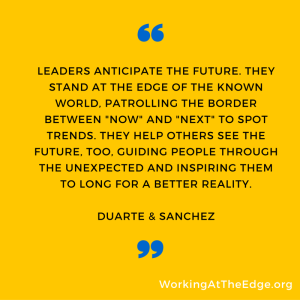 The decline of capitalism and the Internet of Things
The decline of capitalism and the Internet of Things
Earlier I published a post about how we seem to already have a crisis of vision in education with lots of rudderless initiatives absent a clearly articulated vision for learning. In the post I shared a call to action for leaders to look to the horizon, learn about what’s happening in the outside world and use that to ignite conversations about learning and the learning environment in schools.
Recently, I ran across this article and accompanying video published by Big Think — The Internet of Things Will Assimilate Us Into a Worldwide Neural Net. In the video, economic and social theorist, Jeremy Rifkin, shares his concept of the Internet of Things – how it will change the economy.
There’s a new technology revolution coming online that’s making it possible for millions and soon hundreds of millions and eventually billions of people to not only produce and share their own information goods but now energy and physical goods. And it’s called the Internet of Things. This is the expansion of the Internet. And it’s all happening in the last 12 months. This is a pretty new phenomenon.
What’s going on here is the traditional internet that we’re all so familiar with is now converging with a very fledgling energy internet an a nascent logistics and transport internet. As these three Internets come together, they’re creating a single operating platform – a nervous system, a sort of intelligent brain. They’re taking this brain and they’re attaching sensors across the entire value chain of the economy to feed into these three Internets – energy, communication and logistics.
Right now we have 13 billion sensors out there connecting appliances and things with human beings. IBM says in 2020 we’ll have 30 billion sensors connecting every thing with every being. By 2030, the most recent forecast, is that we’ll have 100 trillion sensors connecting all of us in one vast, lateral, neural network made up of three operating engines – a communication Internet converging with an energy and logistics Internet.
This Internet of Things brings us to a third industrial revolution. The form of communication is the Internet. The form of power is renewable energy, distributed renewable energy. And the form of mobility is driver-less, automated vehicles and automated drones. We are just seeing the first inklings of this new platform, of these three Internets in one.
As leaders, how do we wrap our heads around this new economy and new way of living? How will it impact what learners need to know and be able to do? How will it impact careers and fields of employment? Can the answers to these questions create an urgency for change within our system?
After reading the article and watching the video, I’m reminded of the quote from Illuminate and the necessity for school leaders to spot, evaluate and act on trends such as the Internet of Things:
Leaders anticipate the future. They stand at the edge of the known world, patrolling the boarder between “now” and “next” to spot trends. They help others see the future, too, guiding people through the unexpected and inspiring them to long for a better reality.
What ways have you experienced the Internet of Things? Where do we start learning more, building our understanding, engaging in conversations with our stakeholders and developing action plans to pivot our organizations?
Connect with Randy on Twitter and on the TLTalkRadio podcast!
Get new content delivered to your inbox and the ebook 3 Key Principles of Digital Transformation. The ebook contains valuable information from my experience leading a digital transformation and working with a variety of stakeholders over the past decade.
- A silver lining - January 22, 2022
- Is our use of tech working against us? 🤔 - September 8, 2021
- What’s NOT going to change in the next 10 years? 🤔 - September 7, 2021